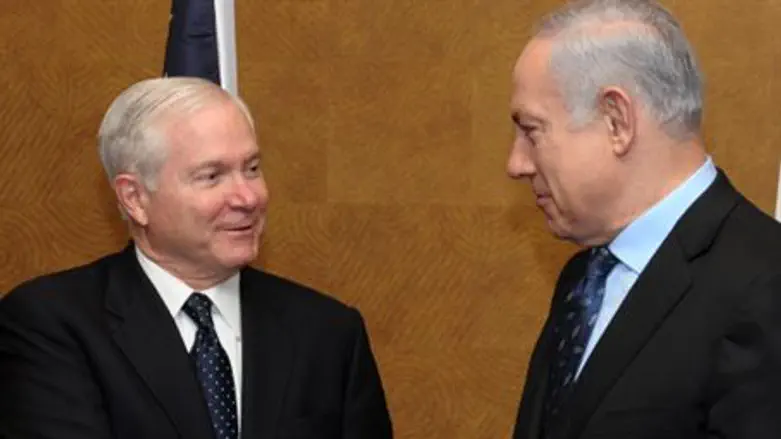
Former U.S. Secretary of Defense Robert Gates said that a military attack on Iran could "prove catastrophic," UPI reported on Thursday.
Gates, who headed the Pentagon during the administration of former President George W. Bush and remained at the post when Barack Obama became president, said that America and Israel lack the capability to wipe out Iran's underground facilities permanently, and an unprompted attack would ensure a nuclear Iran eventually, after the country digs its labs deeper underground and redoubles its resolve.
"The results of an American or Israeli military strike on Iran could, in my view, prove catastrophic, haunting us for generations in that part of the world," Gates said in a speech in Norfolk on Wednesday, according to UPI.
He urged U.S. diplomats to make clear Israel does not have a "blank check" to attack Iran unilaterally.
Instead, Gates said, the United States and Israel should pursue economic sanctions and international isolation, which he said will convince Iranian leaders to abandon their nuclear ambitions.
The comments come as Iran's currency, the rial, continues to plunge, having lost more than half its value since last week. On Wednesday, scuffles broke out in central Tehran, in the first sign of unrest over the plunging currency.
Hundreds of police in anti-riot gear stormed the currency exchange district of Ferdowsi, arresting illegal money changers and ordering licensed exchange bureaus and other shops closed.
On Saturday alone, the rial dived six percent to a new low of around 28,600 to the dollar. However, President Mahmoud Ahmadinejad denied news reports that international sanctions are crippling his country's economy, claiming that Iran has actually been coping with the economic sanctions and that the impact from diminishing oil earnings is being softened by the central banks supplying hard currency to finance imports.
Ahmadinejad said the West is waging a "psychological war," adding, "Enemies have managed to reduce our oil sales, but hopefully we will compensate for this."
He later said Iran will not back down on its nuclear program despite the problems caused by Western sanctions.
Iran's Supreme Leader Ayatollah Ali Khamenei said on Wednesday that sanctions and pressure cannot force Tehran to surrender since Iranians are strong and always overcome problems.
Foreign Minister Avigdor Lieberman predicted this week that international sanctions could trigger a popular uprising in Iran like the revolt in Egypt that toppled president Hosni Mubarak.

